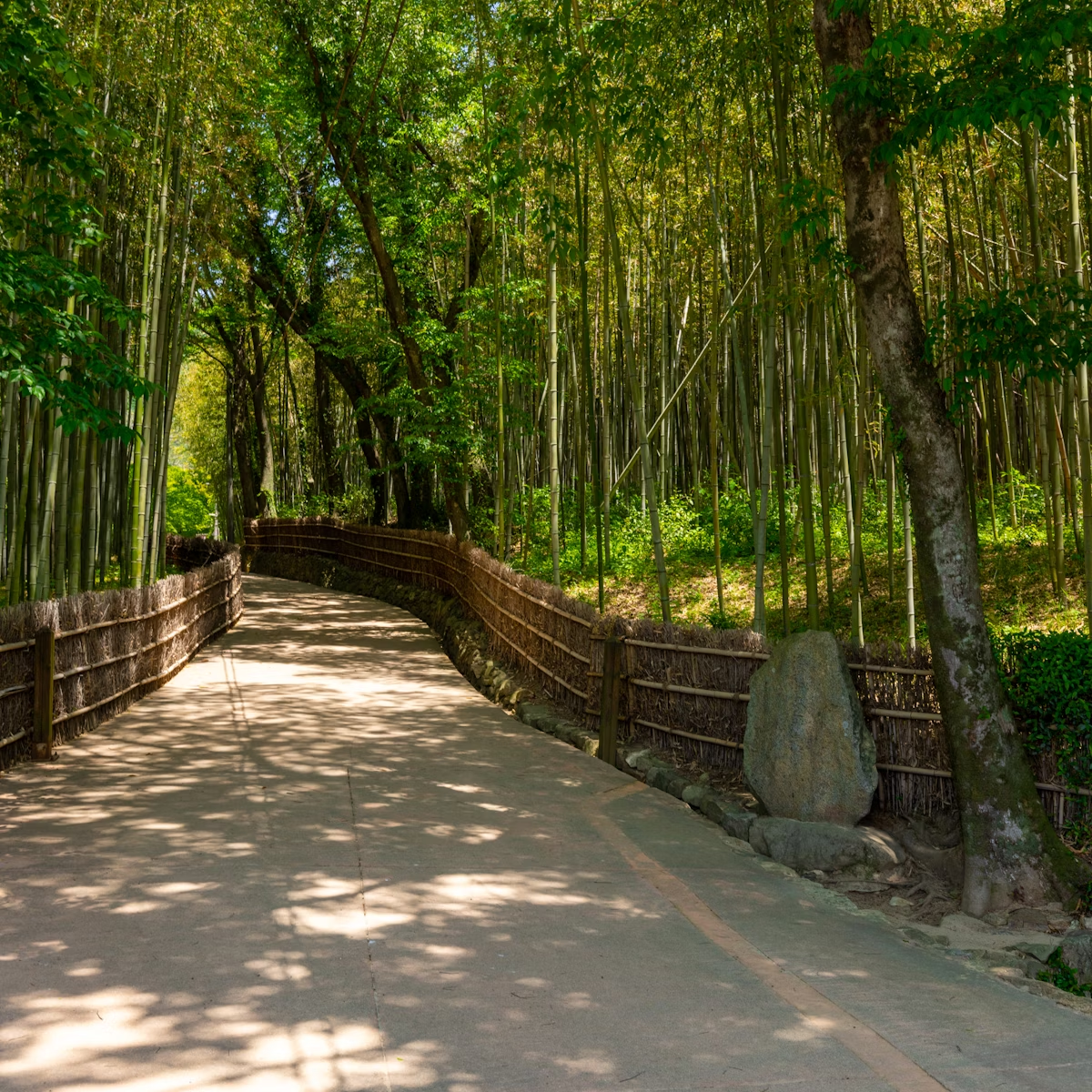Overlooking Gwangju, Mudeungsan National Park is a gorgeous green mountain range with a spiderweb of well-signed trails leading to the peak, Cheonwang-bong (1187m), and up to the towering rocky outcrops Seoseok-dae and Ipseok-dae. Just 30 minutes by bus from central Gwangju, it's naturally packed on weekends.
The most popular route starts at the temple Wonhyo-sa, which has an ornate pavilion overlooking the park and a bronze bell dating to 1710. The temple is just uphill from the bus stop. Double back and take the main path 4km up to Seoseok-dae and Ipseok-dae; it's steep going as you get towards the top. Then continue down through Jangbuljae pass to the temple Jeungsim-sa (another 6km), Gwangju's oldest temple. It has a Silla-era iron Buddha backed by red-and-gold artwork, housed in an insignificant-looking shrine behind the main hall. The tiny shrine perched on a rock next to it is dedicated to the Shamanist Mountain God.
Around 250m past Jeungsim-sa, on the way to the bus stop, is the Uijae Museum of Korean Art. This art gallery displays the gorgeous landscape, flower and bird paintings by the famed Heo Baek-ryeon (1891–1977), whose pen name was Uijae. The artist lived in a hermitage here in the shadow of the mountains.
The hike takes about five hours; if you’re pressed for time, just visit Jeungsim-sa and the Uijae Museum.
The cleverly named bus 1187 (the height in metres of Cheonwang-bong) terminates near Wonhyo-sa; you can catch the bus (every 20 minutes) from the bus terminal or in front of the train station. Bus 9 (every 10 minutes) runs to the Jeungsim-sa area from Geumnam-no 4-ga and the bus terminal.

